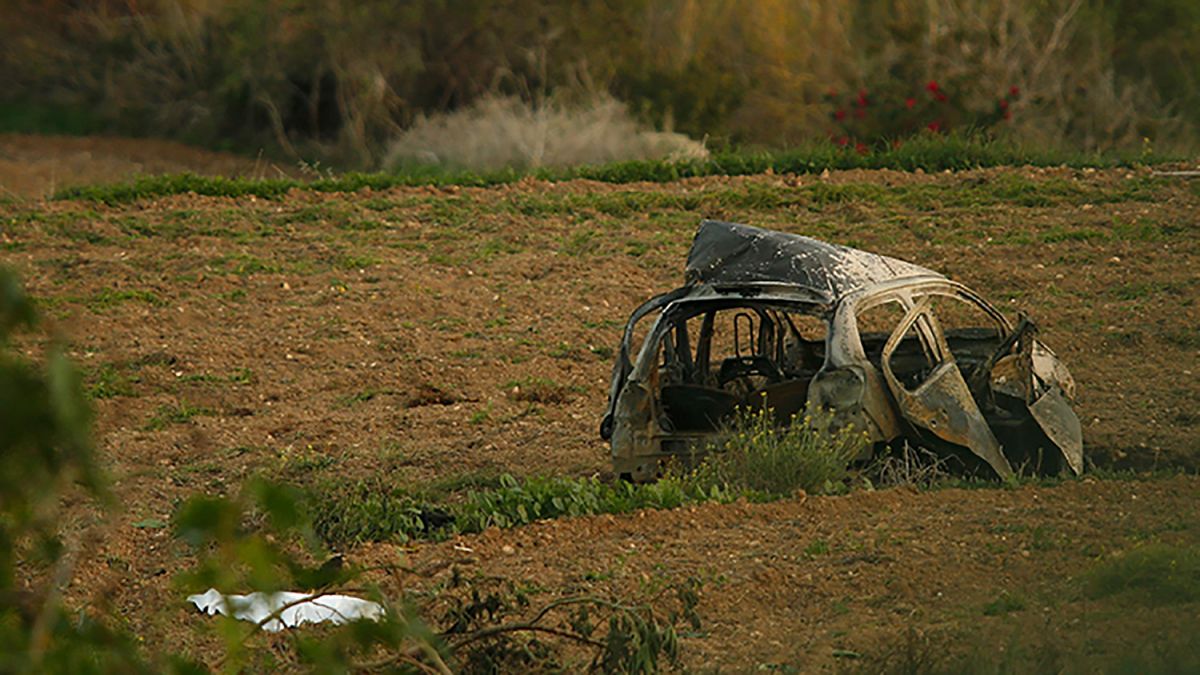The slain journalist had no shortage of enemies, having penned stories critical of many prominent local politicians as well as businessmen, both local and foreign, and allegedly corrupt dealings.
The police investigation into the murder of Daphne Caruana Galizia promises to be one of the most complex in the island’s history, if only because of the number of enemies the Maltese journalist and blogger had made through her work.
Caruana Galizia, a mother of three, died yesterday when an explosive device was detonated near her car, not far from her secluded home in Bidnija, Malta. She was 53.
The slain journalist, dubbed by Politico as a “one-woman-wikileaks”, was a polarising figure in Malta and a thorn in the side of many across the political spectrum. Local politicians as well as businessmen, both local and foreign, had found themselves the subjects of her reporting.
Her work also had numerous admirers, both in Malta and abroad – thousands held a candlelight vigil last night and expressions of condolence continue to flood social media in reaction to her death.
In her 20 or so years of reporting, she uncovered political corruption and thuggery, banks that allegedly facilitated money laundering, as well as links between Malta’s online gaming industry and the Mafia.
Over the past two years, Caruana Galizia had largely focused her attention on the Panama Papers, a cache of 11.5 million documents from the internal database of the world’s fourth largest offshore law firm, Mossack Fonseca, revealing links to Maltese government politicians, most notably cabinet minister Konrad Mizzi.
Her later claims that Prime Minister Joseph Muscat’s wife was the owner of a company in Panama which received vast payments from accounts in Azerbaijan had led to an early general election being called this year, which Muscat went on to win by a significant margin.
Both Muscat and his wife deny the allegations.
Although the majority of her investigations targeted allegedly corrupt practices by the Malta Labour Party (PL), Caruana Galizia showed no hesitation in switching the focus of her reporting to scandals relating to the newly elected opposition Nationalist Party (PN) leader Adrian Delia over the past few months.
At last count, Malta’s online court registry listed 42 pending libel cases against Caruana Galizia. The most recently filed were a string of cases filed by Delia whom Caruana Galizia had linked to a prostitution racket in Soho, insisting that Delia had held the proceeds of a number of West London brothels in a bank account bearing his name. Delia insists it was a client account and that he had resigned from the company owning the property after becoming aware of its use.
Tourism Minister Konrad Mizzi, his ex-wife and Mizzi’s former communications coordinator had sued Caruana Galizia for libel over an article published on her blog in 2014. Another libel case filed by Konrad Mizzi was due to take place in three weeks.
Just over a year ago, Caruana Galizia had been served with a string of financially crippling court orders, accompanying libel suits filed by the Minister for the Economy Chris Cardona and an associate over a story she had published regarding their behaviour during an official visit to Germany. A public fundraising campaign later raised enough cash to satisfy the court’s demands.
In June last year, Alfred Mifsud, the deputy governor of the Central Bank of Malta, sued for libel after Caruana Galizia alleged that he had received payments to act as a lobbyist for a tobacco company.
Maltese businessman and hotelier Silvio Debono has no less than 19 pending libel cases against the journalist.
Former PN MP Jeffrey Pullicino Orlando had been another frequent target of Caruana Galizia’s Running Commentary blog and also has a pending libel case against the slain blogger, over comments posted beneath an article about a third party.
The police’s job will be to identify what aspects of her work could be linked with her killing.
One of the more disturbing aspects of her death was the meticulous planning involved in plotting her assassination.
Daphne Caruana Galizia was no stranger to death threats and had made sensible security arrangements to her secluded house, in Bidnija, a relatively remote area. More than once, she had been offered police protection.
It is too early to say whether it was a bomb placed inside her rental car or a remotely-triggered roadside bomb that claimed her life.
Her killers, who went to the trouble of observing her movements for long enough to set up an ambush or plant a bomb in a car that wasn’t her usual vehicle, also chose a day when one of the regular targets of her writings happened to be duty magistrate.
Whatever the motivations of the killers, the media, the justice system and the government all find themselves in the spotlight once more.
Her death also sits uneasily with other journalists – the chilling effect often mentioned in her libel cases, now far more deadly.
It is too early to fully grasp all the implications of Caruana Galizia’s murder, but one thing is for sure: a new chapter in Maltese journalism has opened and it is unlikely to make pleasant reading.
By Matthew Agius
